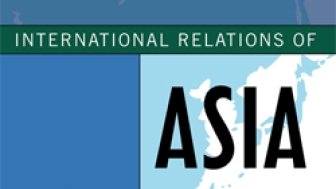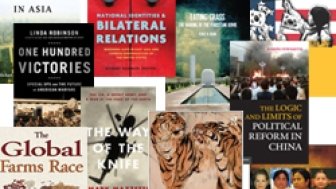Michael Yahuda
Former Fellow
Professional Affiliation
Professor Emeritus in International Relations, the London School of Economics Visiting Scholar, Sigur Center of Asian Studies, Elliott School for International Affairs, George Washington University
Expert Bio
In recent years my work has focused on the inter-actions between politics at global, regional and local levels with particular reference to East Asia. That was the main focus of my book The International Politics of East Asia Since 1945 (2005), which was a revised and updated version of a similar book published ten years previously. The first book explored how the dynamics of politics between the superpowers during the Cold War period shaped the region and how junctions and disjunctions took place between local conflicts and the interests of the global powers. Building on that the second revised edition explored how the end of the Cold War reshaped regional politics under conditions of American primacy. However, both books sought to show how the policies of the major powers in particular were shaped by their respective domestic political cultures and processes. With regard to China and its seeming inexorable rise, I have been interested in how its communist government has accommodated itself to the integrative pressures which have followed its economic engagement with the international system. In particular I followed the negotiations with Britain over the return of Hong Kong and the challenges that the absorption of the former British colony into the People's Republic would pose both to Hong Kong and to the Chinese system. That led to my publication of Hong Kong: China's Challenge (1996) in which I argued that on balance Beijing would not undermine Hong Kong's system and looked forward to the possibility that Hong Kong might exercise some influence on the evolution of China. Since the turn of the 21st century China has become more diplomatically engaged with the world and has become increasingly accepted as a responsible member of international society. Within its own region it has sought to clear long-standing border disputes, pursue more cooperative relations with neighbours and be more active and creative in multilateral regional organizations. However, I have been drawn to the one exception, China's relations with Japan. Notwithstanding their deepening economic ties, a chasm has grown in their political relations especially since the end of the Cold War. Much has been made of their disputes over history and of the incompatibility of their respective nationalistic sentiments. My interest however, has been directed at the way in which the impact of the end of the Cold War has set new structures or frameworks for their relations as the two great powers of the region. Never before have they faced each other as relatively equal great powers and there is little space for the other in the national narrative each is forging for its emergence as a more activist power in world affairs. Since arriving in the U.S. three years ago from England, I have been more exposed to American debates about the role and purpose of the U.S. in the world after 9/11 and arising out of that I have become increasing intrigued as to how America can balance its interests between China and Japan in the context of the new enmity between them.
Education
B.A. Hons. SOAS, University of London; MSc. (Econ.) with distinction, SOAS, University of London
Subjects
Asia,China
Experience
- Visiting Scholar, Sigur Center of Asian Studies, The Elliott School, George Washington University, 2003-06
- Visiting Fellow/Professor: Australian National University; University of Adelaide (S. Australia); University of Michigan; Woodrow Wilson Center; Institute of Southeast Asian Studies, Singapore; Fairbank Center, Harvard
- Lecturer and ultimately Professor of International Relations London School of Economics, 1973-2003
- Lecturer, Southampton University, 1966-73
Expertise
International politics of East Asia; China's foreign relations
Wilson Center Project
Sino-Japanese Relations and Their Implications for the United States
Project Summary
The structural factors under-pinning the deterioration of Sino-Japanese relations since the end of the Cold War will be examined. For the first time in their long history China and Japan have to deal with each other as relatively equal great powers and yet neither takes into account the security interests of the other. Their enmity is deepening at a time when the U.S. is re-invigorating its alliance with Japan and is seeking to come to terms with the rise of China. A new triangular relationship is posing new challenges to the U.S. even as Washington is necessarily focused on wider global issues.
Major Publications
-
International Politics of the Asia-Pacific, fourth and revised edition (Routledge, 2019).
-
Sino-Japanese Relations After the Cold War: Two Tigers Sharing a Mountain (Routledge, 2013).
- "The Limits of Economic Interdependence: Sino-Japanese Relations," in A.I. Johnston & R.S. Ross (eds.), New Directions in the Study of China's Foreign Policy, 2006.
- Hong Kong: China's Challenge (Routledge, 1996).
Insight & Analysis by Michael Yahuda

- Article
Recent Books by Asia Program Scholars and Staff

- Past event
- Cold War
Sino-Japanese Relations After the Cold War: Two Tigers Sharing a Mountain

- Video
China, Japan and America
